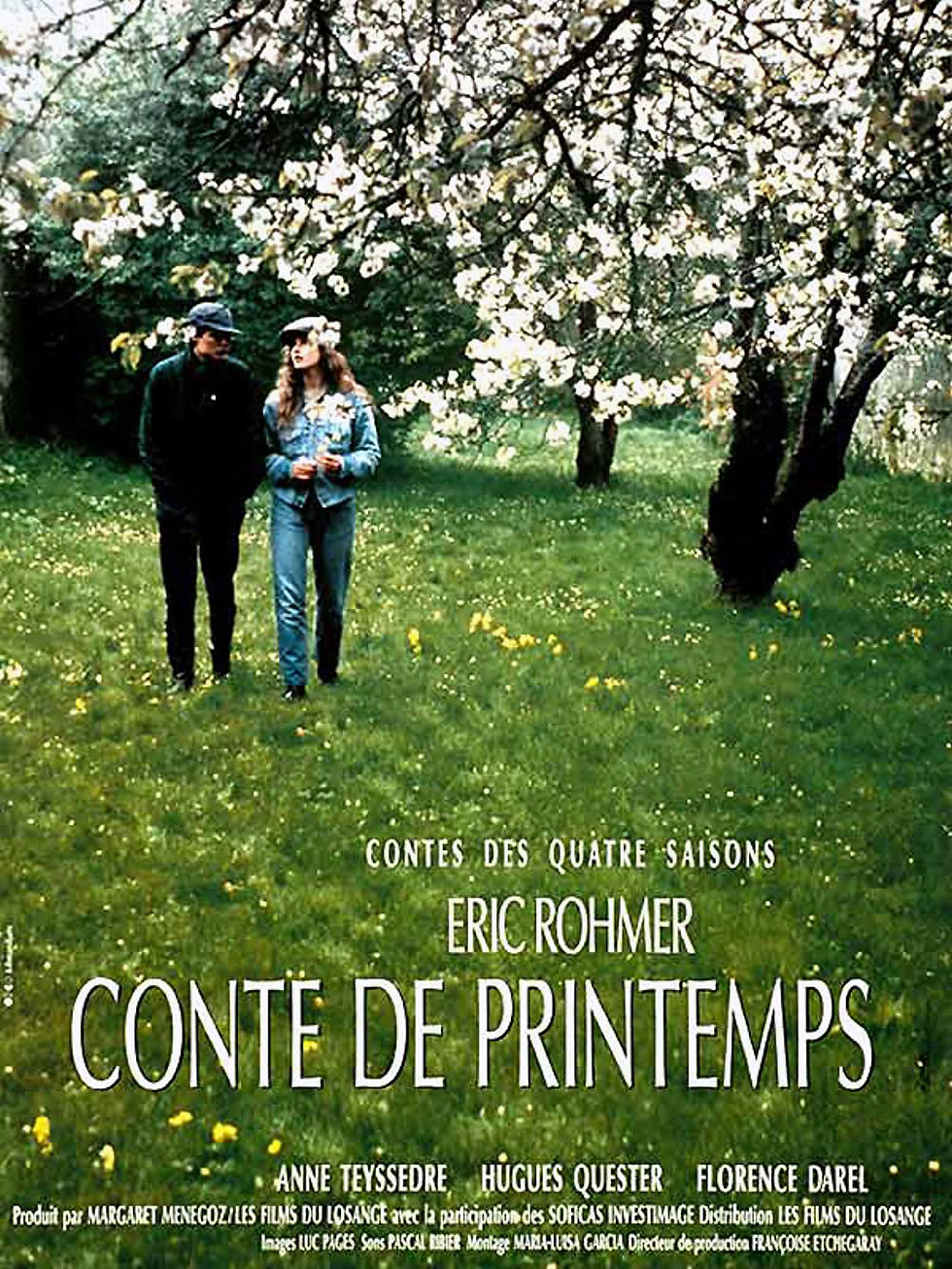"An Autumn Tale" / "Conte D'automne", Dir: Éric Rohmer, 1998
- Ravi Swami
- Sep 22, 2022
- 3 min read

OK, first post after a long time away from this blog but in the interim I've continued exploring films, most recently watching some of the films of Jean-Luc Godard included in a retrospective on Criterion Channel, following his passing this month.
I'll admit that Rohmer's films aren't to everyone's taste - they are very location specific, ie very French, and the plots can seem pedestrian with a lot of dialogue that can seem very banal and directionless, but this is the essence of their appeal for me and I find them a kind of balm as a result.
"Conte D'automne" (Eng: "An Autumn Tale") marks the final part of Rohmer's themed film cycle "Tales of Four Seasons", following a pattern he had established early in his career of 4 thematically linked films forming a collection of sorts and to help identify the themes contained within them.
I'd watched 2 of the previous films but have yet to watch "A Summer's Tale" which immediately preceded "An Autumn Tale" and here it reunites the director with Marie Rivière, seen previously in his films "The Green Ray" and "Four Adventures of Reinette and Mirabelle".
In common with much of Rohmer's work the plot could have existed in an earlier French theatrical form and in the works of, for example, Molière, with insights into human affairs and existential philosophical musings - difficult to write without alienating an unsophisticated audience and using comedy to lighten the tone without ever straying too far from reality.
As an example of "late Rohmer" the director proved he was still on top form when it came to tight scripting and dialogue that never seems contrived or so exaggerated that it descends into broad comedy - in fact it's this level of plausibility that could almost seem banal, like overhearing a conversation between people in real life, but therein lies the skill and it's a feature of all of Rohmer's work.
The plot concerns 2 friends in rural France, "Isabelle" (Marie Rivière) and "Magali" (Béatrice Romand), one happily married (Isabelle) and the other (Magali) divorced, with a teenaged son and trying to manage a vineyard on her own.
Magali has befriended her son's girlfriend "Rosina" (Alexia Portal) whom she believes is on the rebound from her much older lover "Etienne" (Didier Sandre), her university professor, who has habit of dating his students but who would like to form a more long-term relationship with Rosina. However, Rosina has decided that their affair is inappropriate due to their age difference despite preferring older men and rebuffs him, while at the same time keeping in mind that he may be a suitable match for Magali.
Isabelle, concerned that Magali is getting older and may end up alone once her son leaves home, tries to convince her to try putting a dating announcement in a local paper, something Magali finds horrifying before saying that she has given up hope of ever finding someone with whom to share her life and that it is not high on her list of priorities.
Isabelle decides to take the matter in hand and places an advertisement in a lonely hearts column, pretending that she herself is looking for a partner. This leads to her meeting with "Gérald" (Alain Libolt), a divorcee in his 40's, in a nearby town, followed by several meetings where she leads him on to believe that it is she who is seeking a partner when in fact it is part of her scheme to engineer a meeting between him and Magali.
Neither Isabelle nor Rosina are aware of each others machinations and the complications that arise from this are what fuels this gentle comedy, without giving away too many spoilers.
In terms of its theme of a financially independent woman seeking a partner, it has many aspects in common with Antonio Pietrangeli's 1963 comedy "La Visita", echoing the films' rural location, though with a more upbeat ending that made me wonder if it influenced Rohmer, shifting the emphasis away from an essay on relations between the sexes to one where women are centre stage in the proceedings and the men are somewhat peripheral.
If you want a break from whatever is happening in the world or at large in your life I would highly recommend "An Autumn Tale", and in fact any of Rohmer's films, that somehow balance banal and directionless exchanges between characters that at the same time reveal insights into the characters, seen here in an early sequence set in Magali's unruly vineyard where she and Isabelle chat amiably about this or that without ever seeming to get to a point, followed shortly afterwards by more pointed exchanges between, for example, Rosina and Etienne, when she decides to dump him after their extended flirtation and offer him up to Magali instead, to further complicate things.
"An Autumn Tale" / "Conte D'automne", Dir: Éric Rohmer, 1998
Mubi Channel.



Nice review.